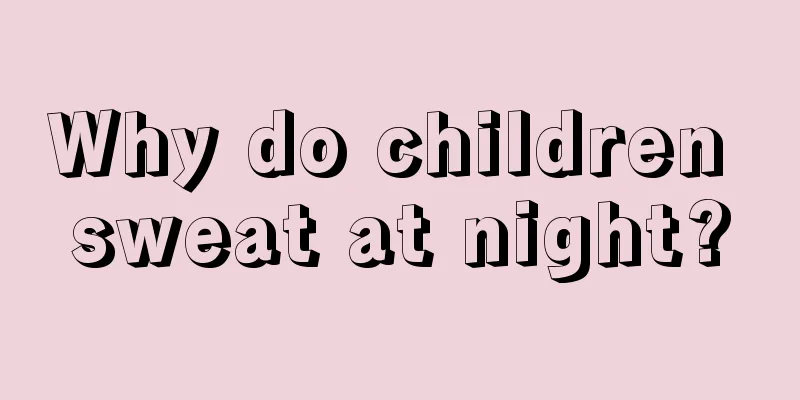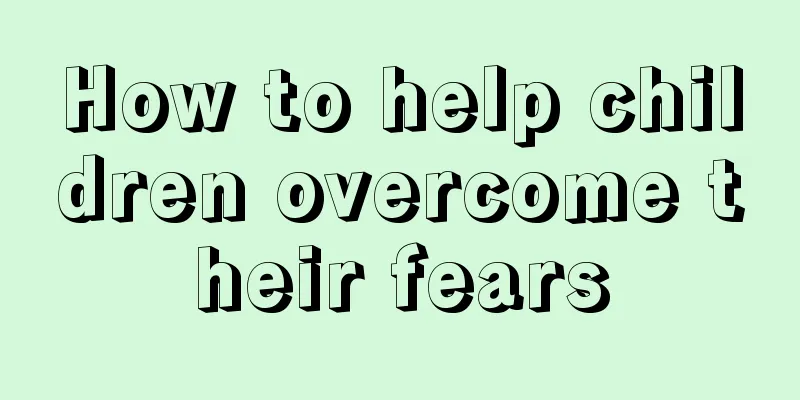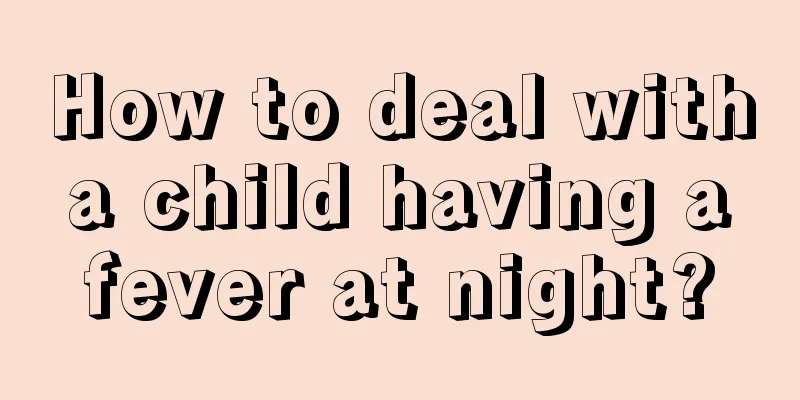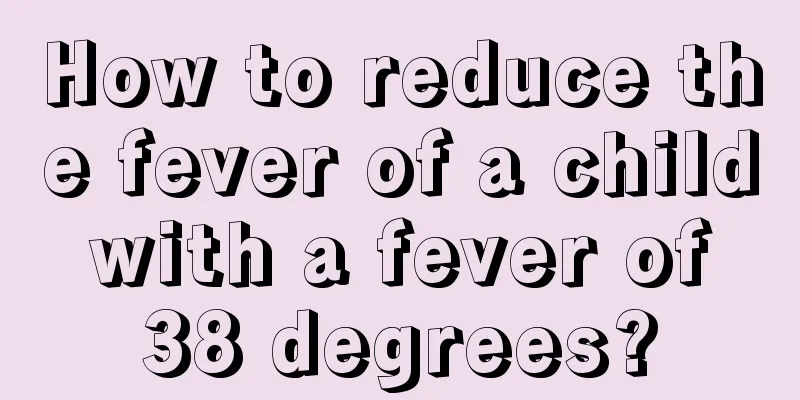Why do children sweat at night?

|
It is said that children are the treasure of their mothers. Therefore, I believe every mother will pay special attention to everything about her children, whether it is their daily life or their mood. In my mother's opinion, these are all very important. Once there is a problem with the child, the mother is the one who is most nervous and worried. Just like when children sweat at night, mothers will be particularly worried and end up being at a loss as to what to do. So, what is the reason for children sweating at night? Let me introduce them to you one by one! I believe you should be satisfied! There are five situations in which children have physiological hyperhidrosis It is common for babies to sweat during sleep, and it is not always a symptom of weakness or illness. Many parents believe that their children’s constant sweating is due to their weak constitution. In fact, a considerable number of children suffer from physiological hyperhidrosis. Physiological hyperhidrosis is more common in the head and neck, often occurring within half an hour after falling asleep, and sweating stops in about an hour. Infants and young children have an active metabolism and are active and lively. Some of them cannot rest even after going to bed at night, so they may sweat on their heads after falling asleep. The so-called physiological hyperhidrosis refers to sweating during sleep when the child is well-developed, healthy, and has no disease. Parents are often accustomed to deciding the best environmental temperature for their children based on their own subjective feelings, and like to cover their babies with more blankets and keep them tightly covered. Because children's brain and nervous system are not yet fully developed and they are in the growth and development period, their body metabolism is very active. Coupled with the stimulation of overheating, they can only regulate normal body temperature by sweating to evaporate the heat in the body. Some active children exercise a lot during the day and generate a lot of heat. The body is unable to dissipate the excess heat through sweating, so the heat accumulates in the baby's body, and the baby's body temperature can reach around 38°C at night. After the baby falls asleep, the heat generated decreases, the sensitivity of the sympathetic nerves decreases, and the body dissipates excess heat through sweating to maintain normal body temperature. In addition, drinking milk, malted milk or eating chocolate before going to bed can also cause sweating in children. Some parents give their children milk, malted milk, etc. before they go to sleep. After the child falls asleep, the body produces a large amount of heat, which is mainly dissipated through sweating through the skin. In addition, too high room temperature or excessive warmth can also cause children to sweat while sleeping, which are all physiological sweating. The weather is hot and stuffy in summer and the bedroom is poorly ventilated, so babies are more likely to sweat. This type of sweating is called "physiological sweating" in medicine. It usually occurs in the first half of the night when you just fall asleep, and the sweat gradually disappears after deep sleep. Parents do not need to worry too much about physiological sweating. This is just a physiological phenomenon during the baby's growth process. As the baby grows older, this phenomenon will gradually decrease. The above is the answer to the question of children sweating at night. Are you satisfied? Here, the editor would like to remind all mothers to take your babies to exercise more when you have time. Activities like playing badminton and hiking are worth recommending. These are all beneficial to children's development. It can enhance their physical and mental health. Hope you can pay more attention! |
<<: Why do children have yellow teeth?
>>: What causes yellow teeth in children?
Recommend
What are the development standards for babies at eleven months?
As the baby grows day by day, parents and friends...
How to check the eyesight of a two-year-old baby
How to check the eyesight of a two-year-old baby ...
Why do babies strain before urinating?
Sometimes the baby's health condition cannot ...
Why do children grind their teeth when they sleep at night?
Teeth grinding can be seen everywhere in our live...
Can children take melatonin?
I believe that people who are not familiar with m...
Can babies eat durian? Be careful not to get irritated after eating!
Some people just like to eat durian, but as we al...
What kind of honey is suitable for children
Children's growth and development is an issue...
The difference between baby eczema and heat rash
Eczema and heat rash are two common diseases amon...
What causes baby twitching while sleeping?
Once you have a child, you have to learn more abo...
What causes children's urine to smell bad?
Some parents may find that their children's u...
How to treat whooping cough symptoms
Whooping cough is an infectious disease of the re...
Methods for babies fed with pure milk powder
After giving birth, mothers find that they have n...
What does it mean when a newborn baby has a stomachache?
The bodily functions of newborns are not fully de...
Diaper rash in children
A rash is a skin disease and is often a serious p...
What to do if you have a cold, diarrhea or fever
There are many cases in life where people suffer ...









